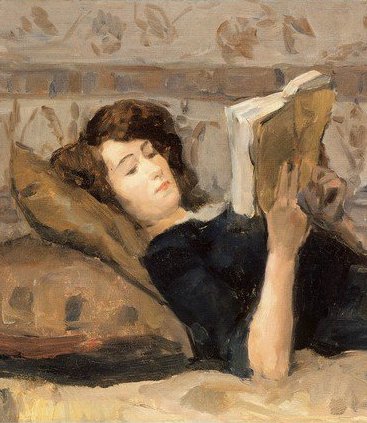
CREATIVE ADAPTABILITY: CONCEPTUAL FRAMEWORK, MEASUREMENT, AND OUTCOMES IN TIMES OF CRISIS
by Hod Orkibi
This article presents the framework and explores the measurement, correlates, and outcomes of creative adaptability (CA), proposed here as the cognitive–behavioral-emotional ability to respond creatively and adaptively to stressful situations. Data collection was in April 2020, during the peak of the outbreak of the Coronavirus pandemic (COVID-19) in Israel. In Study 1, a sample of 310 adults completed the newly developed CA scale, as well as spontaneity, openness to experience, creative self-efficacy, and well-being measurements. The results of exploratory and confirmatory factor analyses corroborated the 9-item CA scale’s theorized underlying construct. The scale’s validity and reliability were also supported. Exploratory analyses suggested that the association between CA and well-being was mediated by creative self-efficacy and that CA may buffer the impact of individuals’ concern about Coronavirus on their well-being. In Study 2, short-term longitudinal data based on a sample of 71 students suggested that CA may predict lower psychological stress over time. Support for the CA scale’s internal consistency reliability was obtained and its test–retest reliability was established. Overall, the results shed light on this new construct as a potential protective factor. Implications for theory, research, and practice are discussed.
MEANING-MAKING THROUGH CREATIVITY DURING COVID-19
by Hansika Kapoor and James C. Kaufman
The COVID-19 pandemic resulted in an abrupt change in routines and livelihoods all around the world. This public health crisis amplified a number of systemic inequalities that led to populations needing to grapple with universally difficult truths. Yet some individuals, firms, and countries displayed resilient and creative responses in coping with pressing demands on healthcare and basic sanity. Past work has suggested that engaging in creative acts can be an adaptive response to a changing environment. Therefore, the purpose of this paper is to describe how entities at the personal, community, and national levels cultivated and expressed creativity in an effort to make meaning during COVID-19. By overlaying the Four C model of creativity on such responses, we aim to (a) to connect mini, little, Pro, and Big creative behaviors with our attempts to make meaning of the ongoing COVID-19 pandemic, and (b) to suggest how engaging in creative expression can be used to guard against the adverse consequences of this outbreak. Acknowledging that this time has been and continues to be distressing and filled with uncertainty, we propose some ways of making sense of current events by applying original thinking across domains. Further, we propose how engaging in creativity can serve to buffer against the negative effects of living through the pandemic.
USING NARRATIVES IN CREATIVITY RESEARCH: HANDLING THE SUBJECTIVE NATURE OF CREATIVE PROCESS
by Saikat Chakraborty
For most of us, creative processes are those which can produce outcomes that are capable of being judged as creative. The outcome-centric recognition of creativity has heavily downplayed the process-perspective of creativity in organizations. Influenced significantly by individual and social subjectivities, creative processes are difficult to enquire on the basis of positivist approaches presently dominating creativity research. Use of narrative methodology in creativity research is proposed as a strategy for not just handling the subjectivities but also for making meaning from them as well as from participants’ emotions. Antenarratives can help to enrich the narrated storyline, and personal narratives of the researcher allows to tie back the subjectivities through co-created meanings. The article aspires to invigorate attention towards the foundations of creativity research that has offered little scope for research paradigms that are beyond the objective-positivist tradition. Consequently, it urges the research community to seek suitable methodologies like the narrative which promises to explore the process-perspective of creativity and enlarge our organizational understanding of creativity.
